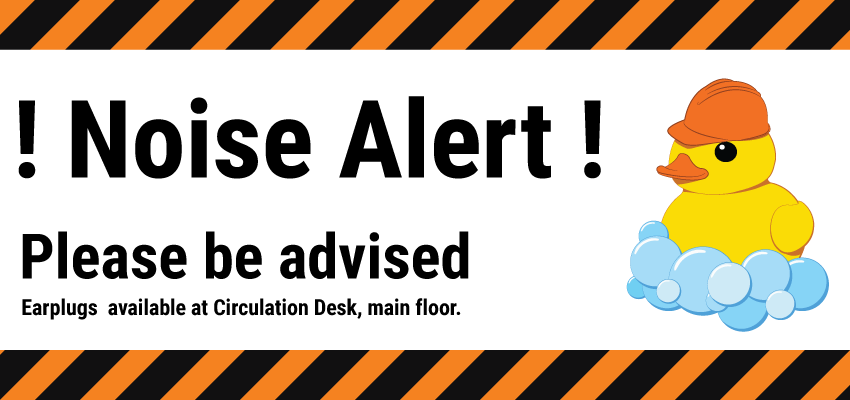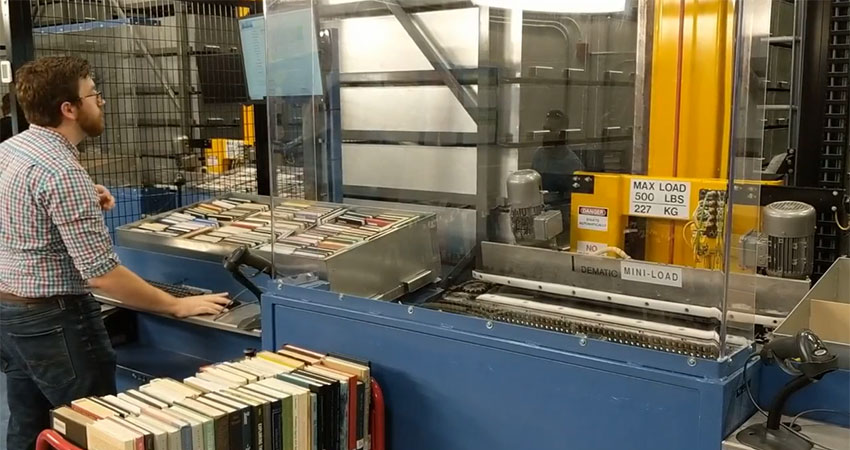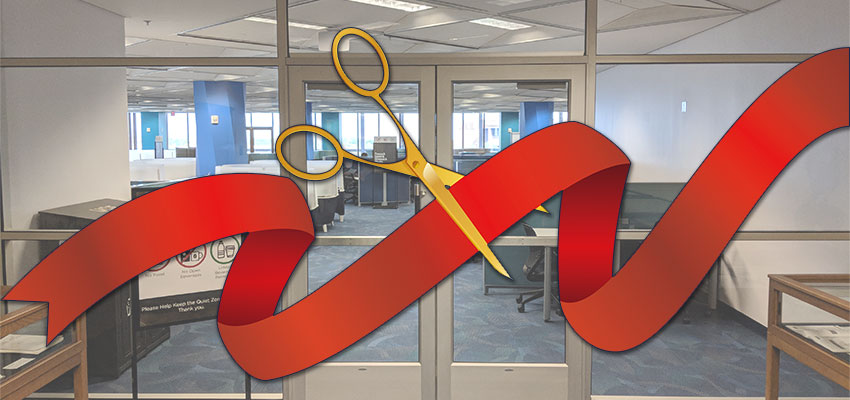Noise alert: Pardon our duck!
21st Century Library, John C. Hitt Library Posted: September 19th, 2018Intermittent noise will continue in the John C. Hitt Library, but a new source of noise is just starting. From now until the start of October, Monday through Friday, between 5:00 p.m. and closing, bricks will be “popped off” the back of the library building (“Student Union side”). It may be noisy with drilling and banging or popping sounds as bricks come off.
The contractors doing the work will be suspended from a basket attached to a boom to do the brick removal above the sloped windows.
The ingest of books into the Automated Retrieval Center (ARC) will continue, with carts of books traveling to the ARC on the 2nd (main) floor.
Thank you for your patience! Ear plugs are available at the Circulation Desk.




